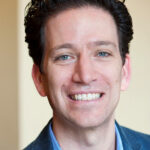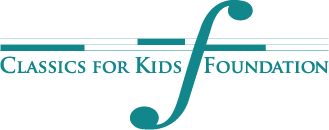
Creators Speak—August 2019
Community MusicWorks
https://communitymusicworks.org/
First, could you describe your initial vision for your program, and some of the important steps you took to make it a reality?
The initial vision for the program was to establish a string quartet residency in the heart of an urban neighborhood, and to experiment with roles for performing musicians to teach, perform, and become part of the life of a community. I was also interested in ideas of education for liberation, and felt that an education in string music could become a vehicle for young people to understand their lives from new perspectives, and for music to help build a strong community of adults and young people.
What are some of the biggest challenges that you faced in starting/developing your program, and what did you learn from those challenges?
There were many challenges in starting and developing the program. In the beginning it took time to convince people that this was an idea that could work. I was 22, and I think people assumed I would be here for a short time and then move on, so many weren’t inclined to support the idea.
Also, finding colleagues who wanted to dig in and invest their careers in the idea took time. Initially our colleagues were freelancing and could only devote a few hours of teaching each week. It took until the fifth year for us to be able to pay a stipend that included hours for teaching, rehearsing, performing, and planning together.
I think the things I learned from these initial challenges was that clarity and persistence were important. Having a clear idea, presenting it consistently to funders, colleagues, and potential partners, and then being willing to keep going after the early disappointments, helped propel the program forward.
Maybe more importantly, however, was the factor that I was getting something rewarding out of this because the program was a way for me to pursue what I needed to be doing—working on my playing, making a career in music of the type I wanted. That kept me going.
What were some of your biggest successes? Why were they successful for you?
Biggest successes over the 22 years of the program have been times when all the elements of the program have come together in an event and we can see the students, the parents, the teaching musicians all engaged and making meaning together. One example was when we commissioned a salsa violin concerto and performed it as an orchestra comprised of advanced students, our professional ensemble, a guest salsa band and band leader, and guest soloist, and the audience was made up of a mix of parents, grandparents, concert enthusiasts, and neighbors. Everyone was stretching to make something beautiful at the edge of their ability, and the energy was palpable for all. Moments like that feel like culminations.
What were some of the directions that didn’t work, and why?
We’ve been a continually adaptive organization, and on a weekly basis we’re evaluating what’s working and what’s not, and figuring out how to make things better. I would say weekly there are things that aren’t working, but we steer the ship together and try to improve things. The practice of reflecting together as a staff has been important to the evolution of the organization. This has resulted in small and large changes over the years.
If you could do it all again, how would you do things differently?
Right now, CMW is focused on racial equity work, and I realize that despite my best intentions toward diversity in our board and staff from the beginning I didn’t know enough about building and organizing boards then to make some of the early recruiting successful. Had I worked in other organizations first I probably would have had a stronger start building the board.
Where would you like to go from here?
I am excited to build the next generation of staff and leadership, and to create pathways for our alumni to come back and lead this organization. We’re working on building a new building now and I look forward to making that a reality and then working toward the day when the organization is propelled by the young people who grew up there.
Any thoughts you’d like to share with program leaders?
Advice for getting started?
Talk to everyone about your idea. Write a one-page description of your vision and plan and share it with mentors, colleagues, people in the field, the community members you intend to serve, and listen like crazy. You’ll learn good things, and you’ll evolve the idea continually. Then, engage the community you’d like the serve as early collaborators, and find ways of creating the programs in partnership from the very start.
Getting to the next level?
Learn about managing people. Effective partnerships and collaborations can move the whole thing forward, and the opposite is also true.
The 3 most important things you’ve learned?
1. Listen to the gut. Most decisions I haven’t felt good about at the beginning haven’t worked out great.
2. Eating well, sleeping enough, and getting exercise are the best strategies for being an effective human being! And being an effective human being helps in leading a program.
3. Stay connected to what inspires you, and to what you need to learn. Always be growing.
How about for students?
How they can best benefit from their program?
Try to prioritize the program with the help of parents of caregivers. Many students have competing demands from other after-school programs or sports, and keeping the music program as the first priority and keeping consistency will mean they can get the most out of it. Consistency is so important for the social as well as musical benefits.
Also, seek opportunities to connect music-making to other parts of life, whether that’s in an ensemble (in school, or in the community), or playing at church, or playing for family members on a holiday, or playing a duet with a teacher at a local bakery. The more points of contact with music and life the better.
How do they help others in their program by example and leadership?
Mentoring younger students is a great way to deepen your understanding of what you’re studying. It’s good for the mentee to have someone a little older and a little more advanced because they can see what’s possible.
What could they do with what they’ve learned to make a difference?
Music is human connection. It can be a spark, a moment of beauty, a form of protest, a solace in mourning, and a source of joy. Sharing music with other people can make a difference in their lives.
Any more advice that you can give to young musicians embarking on a career of musical and social entrepreneurship?
I would recommend that people learn about methodologies of effective service before working in communities to which they don’t already belong. While music is a wonderful activity, we need to avoid the pitfalls of seeing our work as being saviors or missionaries.
Also, becoming clear about Michael Rohd’s definitions of studio practice, social practice, and civic practice art can be clarifying—to understand how we intend to be of service in our musical work. Whether we’re setting up to primarily be working in our studios, or making our work involving communities, or doing work informed by our musical skills but in collaboration with communities to address issues creatively.
